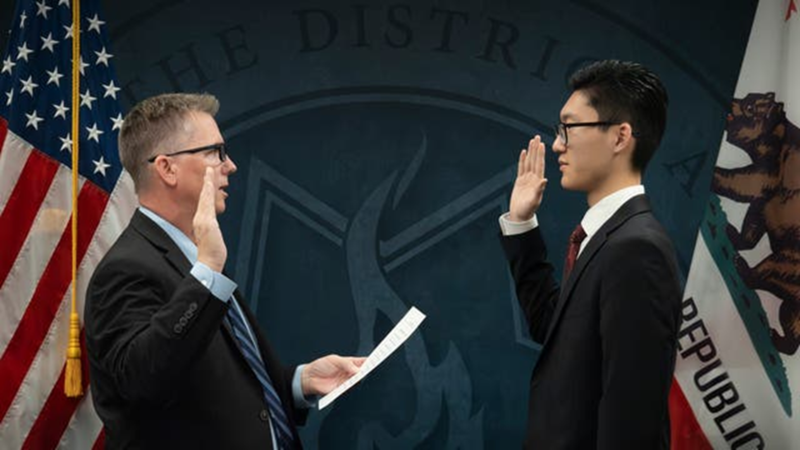How LL.M. Programs Help Foreign Lawyers Pass the US Bar Exam
Input
Modified
The LL.M. Program and Navigating the U.S. Bar Admission Process as a Foreign Lawyer Bar Exam Preparation for LL.M. Students The Future of Foreign-Trained Lawyers in the U.S.

The LL.M. Program and Navigating the U.S. Bar Admission Process as a Foreign Lawyer
LL.M. programs help international lawyers qualify for the U.S. bar exam by offering legal education, language support, and bar preparation. While challenges like eligibility and costs exist, passing the bar boosts global career opportunities and credibility in legal practice.
Internationally educated attorneys must navigate a complex and jurisdiction-specific process in order to qualify to take the bar exam and practice law in the United States. In contrast to numerous countries that regulate the legal profession at the national level, the United States operates on a state-based model. It is imperative for foreign-trained lawyers to conduct thorough research on the admission requirements of each of the 50 states, the District of Columbia, and U.S. territories in order to determine whether they are eligible to take the bar exam.
An LL.M. (Master of Laws) degree from a law school that is accredited by the American Bar Association (ABA) is one of the most accessible pathways for attorneys who have received international training. While some states, such as California and New York, permit foreign-trained lawyers to qualify for the bar exam with an LL.M. degree, others may necessitate additional legal education, such as a Juris Doctor (J.D.) degree.
In addition to satisfying the legal education prerequisites, candidates are required to successfully complete a character and fitness evaluation, which evaluates their professional responsibility and moral integrity. This evaluation entails a comprehensive background investigation, which includes the disclosure of any criminal history, financial irresponsibility, or mental health issues. The bar examination, a rigorous evaluation of legal knowledge and analytical abilities, is the next step that applicants must complete after completing this step. The Multistate Bar Examination (MBE), the Multistate Essay Examination (MEE), and the Multistate Performance Test (MPT) are the three standardized components of the Uniform Bar Examination (UBE), which is adhered to by the majority of states. Nevertheless, certain jurisdictions, including California and Louisiana, administer their own state-specific bar exams.
Candidates are mandated to pass the Multistate Professional Responsibility Examination (MPRE) in nearly all states, in addition to the bar exam. This examination assesses their understanding of professional conduct and legal ethics. The process of satisfying all of these requirements is rigorous; however, foreign-trained lawyers can successfully obtain admission to a U.S. state bar and practice law in the country with the appropriate preparation.

Bar Exam Preparation for LL.M. Students
LL.M. programs are essential in assisting international lawyers in their preparation for the U.S. bar exam. These programs not only provide the essential legal education but also offer specialized courses that concentrate on bar exam preparation. Fordham Law and Miami Law have customized their LL.M. programs to include courses that improve legal writing, analytical reasoning, and fundamental knowledge of U.S. law. Furthermore, certain institutions provide bar preparation workshops and seminars, such as Miami Law's "Pass the Bar" seminar, which provides students with strategies for navigating the essay and multiple-choice sections of the exam.
Many LL.M. students face a substantial challenge in achieving language proficiency, as the bar exam necessitates a firm understanding of legal English. Fordham Law's Legal English Institute is among the institutions that assist international students in enhancing their legal writing and communication abilities, which are critical for success on the bar exam. In order to simulate the testing environment and acquaint students with U.S. legal principles, other LL.M. programs implement performance-based assessments and practice exams.
The bar exam preparation landscape is poised to undergo a significant transformation with the implementation of the NextGen Bar Exam in July 2026. The NextGen Bar Exam is designed to prioritize practical lawyering skills over rote memorization, in contrast to the current UBE format. This novel methodology will reduce the duration of the testing process from 12 hours to nine and incorporate performance-based, multiple-choice, and short-answer assignments that are representative of real-world legal practice. Although this modification may be advantageous for students who encounter difficulties with conventional memorization-based exams, it also poses obstacles for those who are proficient in conventional study techniques. Consequently, LL.M. programs will be required to modify their curricula to include a greater number of hands-on learning experiences, including legal drafting, client counseling, and dispute resolution exercises.
There are numerous benefits to passing the U.S. bar exam that extend beyond the mere capacity to practice law in the United States. Bar admission in high-profile jurisdictions such as New York or California significantly improves career prospects, even for those who do not intend to remain in the United States. Numerous international attorneys leverage their U.S. bar admission to secure positions in multinational law firms, corporate legal departments, and arbitration panels. A U.S. bar license can be a valuable asset for international business transactions and provides credibility in cross-border legal matters. Some LL.M. graduates who successfully pass the bar also pursue academic, governmental, or policy-related positions, where their proficiency in U.S. law provides them with a competitive advantage.

The Future of Foreign-Trained Lawyers in the U.S.
Nevertheless, the bar exam process is not without its obstacles. The exam preparation process necessitates months of dedicated study and is both time-intensive and costly. Many LL.M. students are compelled to balance their coursework with bar preparation, which restricts their capacity to investigate specialized legal topics beyond the bar-tested subjects. In addition, certain LL.M. students incorrectly believe that they will be eligible to take the bar exam, only to discover that they do not satisfy specific state-specific requirements. In order to address these concerns, it is imperative that law schools maintain open communication regarding bar eligibility throughout the recruitment and induction processes.
In the fiercely competitive global legal education market, the bar exam has also emerged as a strategic advantage for U.S. LL.M. programs. The opportunity to appear for a state bar exam is the primary reason why many international students prefer U.S. LL.M. programs over those in other countries. This advantage has been acknowledged by law schools, which now frequently emphasize bar exam eligibility as a critical selling point in their recruitment materials. The prospect of obtaining a U.S. legal license within one year of study is an appealing proposition for foreign-trained lawyers, a privilege that is not readily accessible in other jurisdictions.
However, the emphasis on bar passage also presents obstacles for law institutions. In order to accommodate both students who are pursuing bar admission and those who are seeking specialized academic enrichment, institutions must maintain a balance in their programs. Certain law institutions have initiated the development of LL.M. programs that explicitly exclude the bar exam, instead providing specialized tracks in fields such as intellectual property law, human rights law, and international business law. Law schools can more effectively accommodate the diverse requirements of their international student populations by clearly distinguishing bar-focused LL.M. programs from non-bar programs.
Ultimately, the decision to pursue an LL.M. in the United States and sit for the bar exam for internationally trained attorneys necessitates a thorough examination of financial investment, eligibility requirements, and career objectives. The U.S. bar exam is a powerful credential that enhances legal professions worldwide; however, success in the process necessitates strategic planning and comprehensive preparation. The future of foreign-trained lawyers in the U.S. legal profession will continue to be significantly influenced by LL.M. programs, as the bar exam's structure continues to evolve and the emphasis on practical skills continues to increase.





















